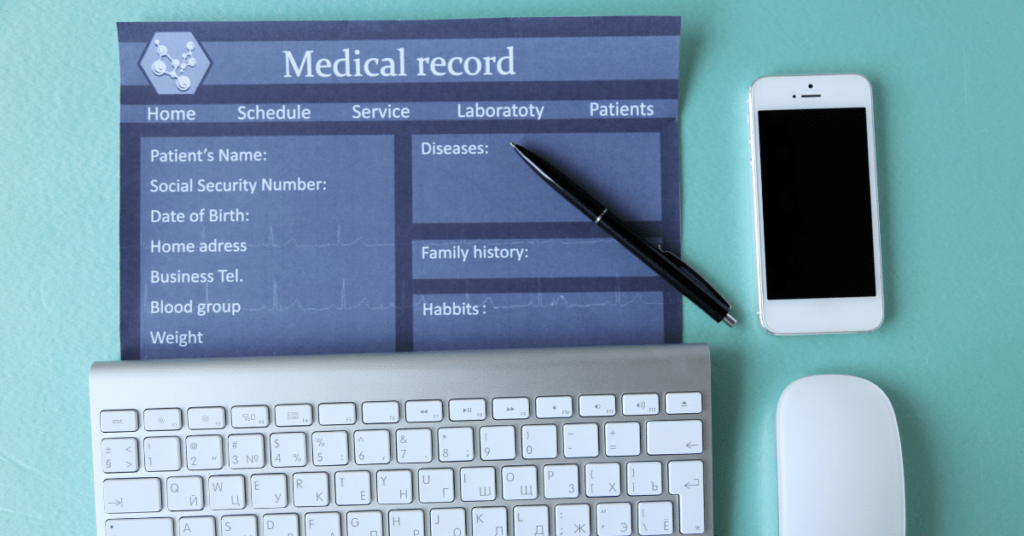Data Collection Tools Clinical Trials: Data is everything – irrespective of the field – it plays a primary role, and the same applies to clinical trials. Efficient management of data—from collection and analysis to publishing and archiving—is material in ensuring accuracy, integrity, and compliance throughout the study lifecycle in a clinical trial.
Data collection tools in clinical trials serve as the backbone for managing trial data. They facilitate the seamless capture, storage, and analysis of clinical data, significantly impacting the overall success and reliability of trials. Therefore, choosing the right tools involves understanding the strengths and weaknesses of each tool.
This article contains the following:
- Data Collection Tools Clinical Trials
- Open-Source Data Collection Tools
- Data Collection Tools For Decentralized Trials
- Clinical Trial Data Collection Software
What Are Data Collection Tools Clinical Trials?
Data collection tools in clinical trials includes a range of software and systems designed to handle every stage of a clinical study. They are systems that can support the intrinsic processes involved in the process of the entire clinical study – from collecting data to analysis and sorting it.
Some tools manage the full study process, while others address specific challenges. When designing and selecting software for your study, it’s important to evaluate the strengths and weaknesses of each tool, considering the specific requirements of your study and any gaps in your data management resources.

How To Choose Data Collection Tools Clinical Trials?
Data collection tools for clinical trials not only facilitate the collection of clinical trial data but also ensure compliance with regulatory standards and protocols.
1. Each clinical study is unique, and so are its data management needs. Depending on your organization, you may have custom-built study resources already in place, or you might be starting from scratch. In some cases, you may only need to adopt one or two software tools to fulfill your data management needs.
2. Make sure that the tools and resources you choose are compliant with the regulations governing your study.
3. More holistic software solutions, such as Clinical Data Management Systems (CDMS), cover the full spectrum of data management for clinical studies, combining many tools into a single integrated system.
4 Types Of Data Collection Tools Clinical Trials
Here are some commonly used data collection tools in clinical trials:
1. Electronic Case Report Forms (eCRF)
Electronic Case Report Forms are digital versions of traditional paper-based case report forms used in clinical trials. They allow for the electronic submission of participant data, often via web-based platforms. eCRFs enhance data accuracy through features like form validation, data security measures, and standardized data formats.
2. Electronic Data Capture (EDC) Systems
EDC systems streamline the collection and management of clinical trial data in electronic format. They integrate with eCRFs to capture data directly from study participants, reducing the time required for data entry and improving data accuracy. These systems are essential for large-scale trials where efficient data handling is critical.
3. Electronic Patient Reported Outcomes (ePRO)
ePRO tools enable participants to report their health outcomes directly using electronic devices such as smartphones or tablets. By eliminating the need for paper-based surveys, ePRO tools enhance data immediacy and accuracy, providing real-time insights into patient-reported outcomes throughout the trial.
4. Interactive Response Technology (IRT)
IRT systems manage patient interactions and drug supply logistics in clinical trials. They ensure study integrity by integrating with other data collection systems and maintaining compliance with study protocols. IRT tools play a crucial role in decentralized trials where patient engagement and remote data management are central concerns.

What Are Open-Source Data Collection Tools?
In clinical trials, open-source data collection tools offer cost-effective alternatives to proprietary software, providing transparency and flexibility for clinical data management. Moreover, the open-source data collection tools can be evaluated alongside other data lineage solutions, such as data catalogs and data observability solutions, depending on the application.
Below are some commonly used open-source data collection tools that can be used in clinical research:
• OpenMetadata: Facilitates metadata management and data governance in clinical trials.
• OpenLineage + Marquez: Provides data lineage tracking and metadata management capabilities.
• Egeria: Enables metadata integration across various platforms in a standardized manner.
• Apache Atlas: A scalable solution for metadata management and governance.
• Spline: Offers data lineage visualization and monitoring capabilities.
What Are Data Collection Tools For Decentralized Trials?
Decentralized trials, which involve remote data collection, require specialized tools to ensure the data is gathered, managed and monitored in the right manner.
Here are some popular methods of data collection tools for decentralized trials:
1. Electronic Data Capture (EDC) Systems:
- Medrio: A cloud-based EDC system offering flexibility and ease of use for capturing, managing, and reporting clinical trial data remotely.
- Medidata: Provides a comprehensive platform for EDC, with capabilities for integrating data from various sources and supporting remote monitoring.
- Castor EDC: Offers a user-friendly interface and supports complex data capture requirements suitable for decentralized trials.
2. ePRO (Electronic Patient-Reported Outcomes):
- TrialMax eCOA (Electronic Clinical Outcome Assessment): Facilitates remote patient data collection using smartphones or tablets, ensuring timely and accurate patient-reported outcomes.
- RedCap: A secure web application for building and managing online surveys and databases specifically geared towards research data capture.
- Clinpal: Supports patient engagement and real-time data collection through mobile apps, enhancing participant compliance and data quality.
3. Telemedicine Platforms:
- Doxy.me: HIPAA-compliant telemedicine platform allowing secure video consultations and remote patient monitoring, suitable for virtual study visits.
- Veeva Engage: Enables virtual engagement with healthcare providers and patients, integrating with other clinical trial systems for streamlined data capture.
- Zoom for Healthcare: Offers secure video conferencing and webinar capabilities, useful for remote site monitoring and investigator meetings.
4. Wearable Devices and Sensors:
- Fitbit: Tracks physical activity, heart rate, and sleep patterns remotely, providing continuous data for endpoints like mobility and sleep quality.
- Apple Health: Integrates data from various health and fitness apps, allowing researchers to collect real-time health metrics from participants.
- ActiGraph: Provides wearable devices for monitoring physical activity and sleep, offering validated endpoints for decentralized trials.
5. Remote Monitoring Tools:
- Clinical Ink: Combines eSource data capture with remote monitoring capabilities, ensuring real-time access to trial data and site performance metrics.
- Oracle Health Sciences Remote Data Capture (RDC): Enables remote monitoring of study progress, site compliance, and data quality remotely.
- IBM Clinical Development: Offers remote monitoring features, allowing sponsors and CROs to oversee trials, query management, and compliance remotely.

What Are Clinical Trial Data Collection Software?
Choosing the right clinical trial data collection software platform is crucial for the success of a clinical study. Here are five software that can be used for clinical trial data collection:
1. Teamscope
Best for: Mobile Data Collection
Key features: Teamscope is designed for easy data collection via mobile devices, making it ideal for studies where data needs to be collected in the field or remotely. It offers a user-friendly interface for researchers and participants alike.
2. Castor EDC
Best for: Complex and Multi-Centre Studies
Key features: Castor EDC is known for its flexibility and scalability, making it suitable for studies that involve complex protocols or multiple study sites. It offers advanced features for data management and integration with other systems.
3. Smart Trial
Best for: Medical Devices and Post Market Clinical Follow-Up (PMCF)
Key features: Smart Trial specializes in managing clinical trials involving medical devices, particularly for post-market surveillance and follow-up studies. It provides tools tailored to the specific regulatory requirements of medical device trials.
4. REDCap (Research Electronic Data Capture)
Best for: Academic Research
Key features: REDCap is widely used in academic research settings due to its robust features for data management and compliance with academic research standards. It is highly customizable and secure, making it suitable for various types of research studies.
5. Medrio
Best for: Therapeutics & Drug-based Clinical Trials
Key features: Medrio is tailored for managing clinical trials in the pharmaceutical and biotechnology sectors. It offers features specific to the needs of therapeutic and drug-based studies, including rapid study build capabilities and real-time data access.
Each of these data collection software options has its strengths, catering to specific aspects of clinical research. It is important that researchers at a clinical research institute evaluate their study requirements, such as data collection methods, complexity of study design, regulatory compliance needs, and integration capabilities, to select the most suitable platform.

On A Final Note…
Data collection tools in clinical trials are indispensable for ensuring the success of a study. Whether opting for proprietary solutions or exploring open-source alternatives, it’s important to evaluate each tool’s capabilities against the specific requirements of the clinical study.
For more information, please visit us here!

